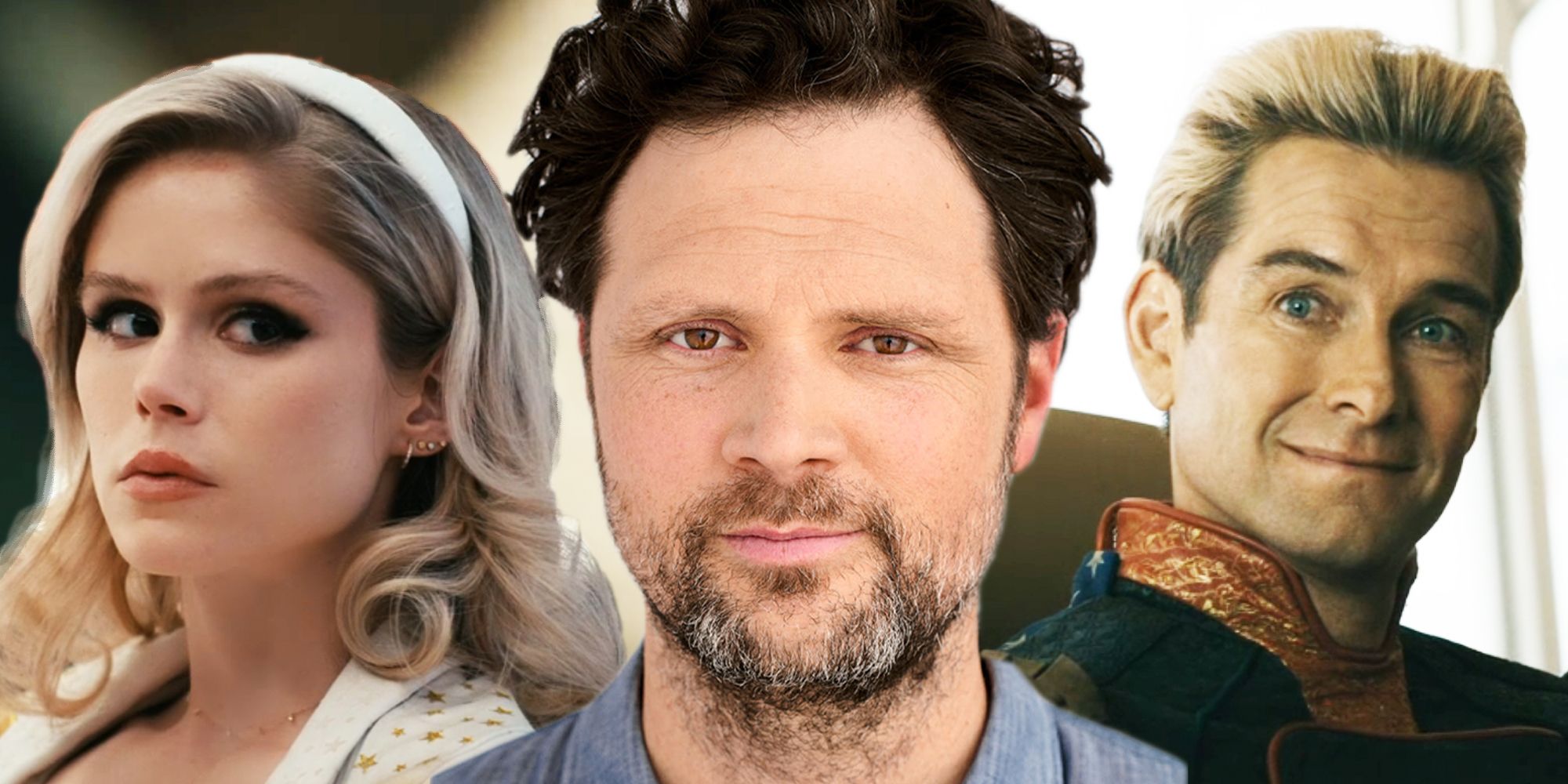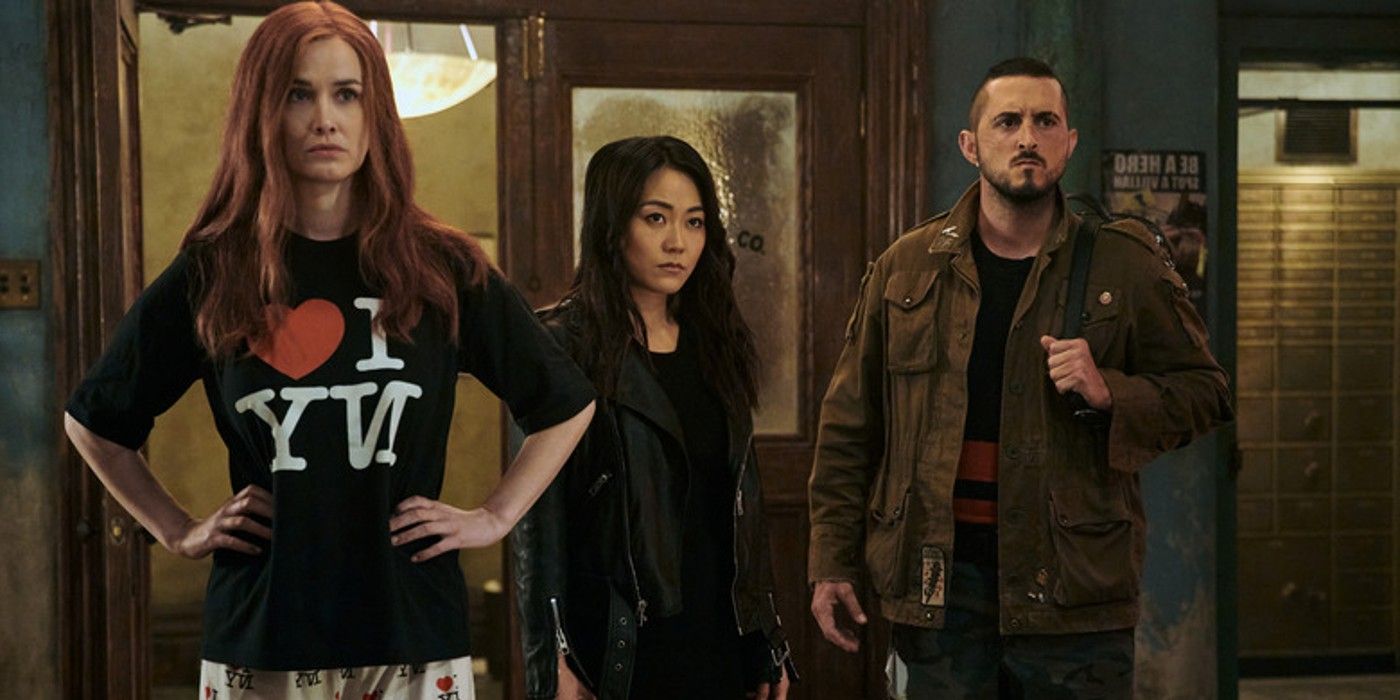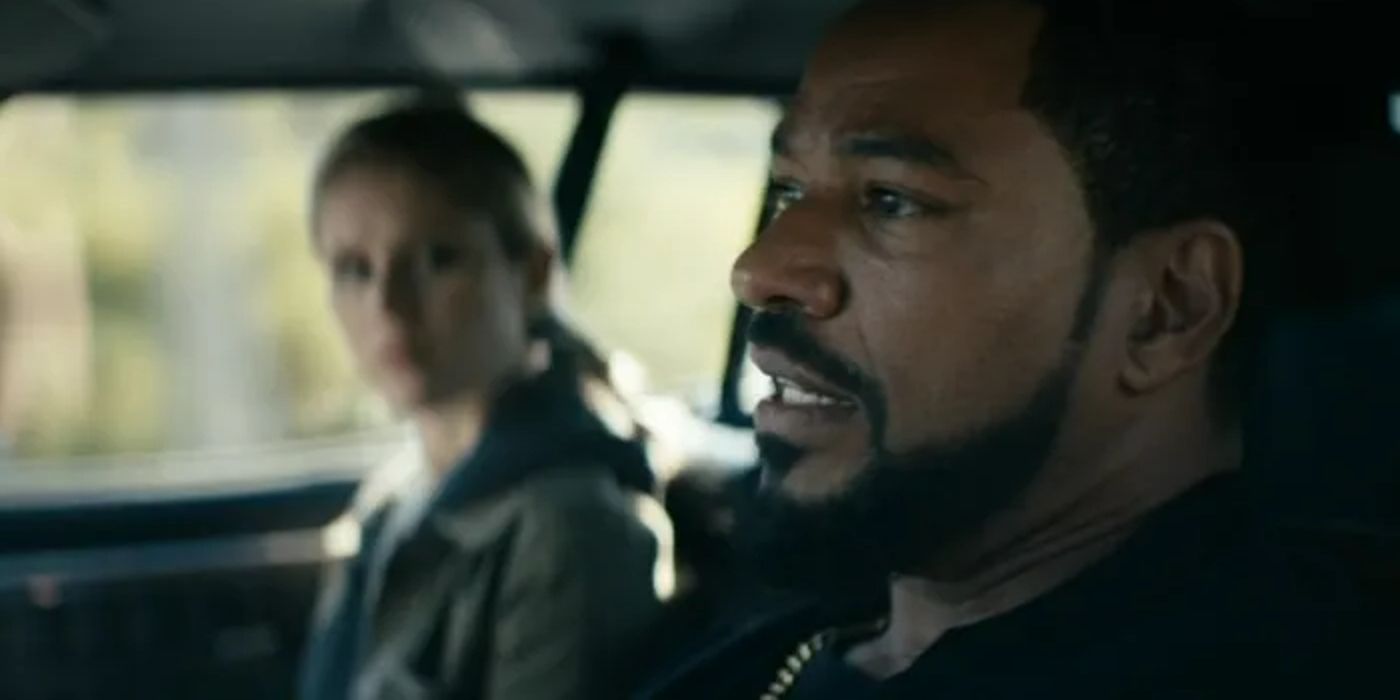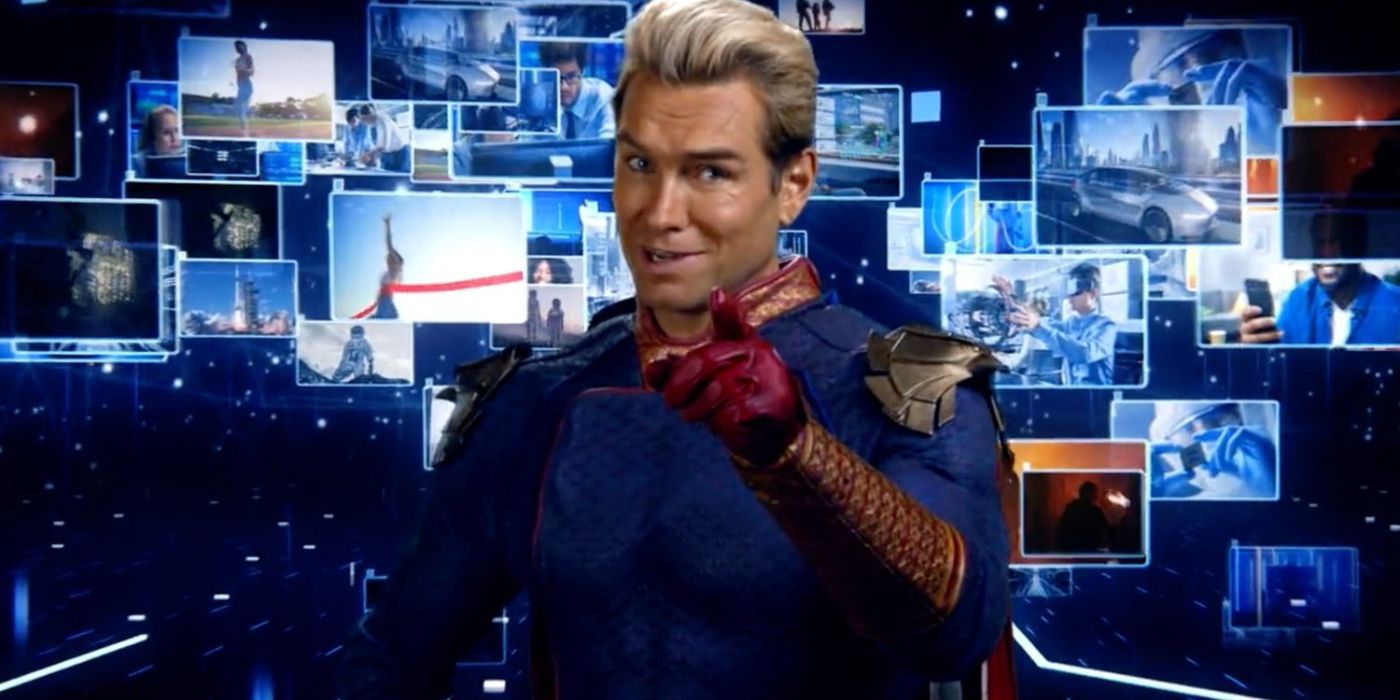Warning: SPOILERS for The Boys season 3Prime Video's The Boys season 3 recently came to its stunning conclusion, which promised even more madness to come. Between the introductions of new characters such as Solider Boy (Jensen Ackles), dangerous developments like temporary Compound V, and an adaptation of the no-holds-barred Herogasm comic arc, The Boys season 3 truly ratcheted up the show's trademark blend of shock, drama, and comedy. Of course, core characters such as Homelander (Antony Starr), Billy Butcher (Karl Urban), and Starlight (Erin Moriarty) are developed to a fuller extent than ever, lending The Boys the emotional weight that allows everything else to pack the punch that it does.
Music has also factored into The Boys season 3 more than ever before, both in underscoring the tension and drama of the series as well as elevating the comedy. The season features not only an excellent dramatic score but also includes hilarious songs such as "You've Got a License to Drive (Me Crazy)" and "Rock My Kiss", both performed by Supersonic (Miles Gaston Villanueva). Another standout moment of the season is an emotional rendition of Doris Day's "Dream a Little Dream of Me" by Kimiko (Karen Fukuhara).
Since season one, the music for The Boys has been composed by Christopher Lennertz with assistance from his music team, which includes composer and producer Matt Bowen. Bowen, however, was also co-composer on two episodes of Season 3. Matt Bowen spoke with Screen Rant about being a part of a music team, composing for the tone of The Boys, and inappropriate band names.
Screen Rant: I read that you came to LA to be an engineer and producer, and kind of fell into composing. Was there a specific score or composer that put you on that path?
Matt Bowen: Absolutely. When I first moved, it was to be music producer, and I realized that step one was actually to be a good engineer. I feel like all good music producers are also good engineers. One of the first things I did was an internship at a music house, a company called Emoto Music where they did music for commercials. That was my first stop in LA, with the intention of being an assistant to their in-house engineer. And that was an awesome opportunity because working for commercials, they're doing a completely different genre on a daily basis, and so they would have all these crazy live sessions.
So, by no means was I in this little niche of a live session. They'd have your traditional rock band, then you'd have a bluegrass quartet, and then you'd have somebody come in with glass harmonicas, where they're playing the wine glasses. Everything and anything, and my intention was to get exposed to engineering and build up those chops, but them having in-house composers is where I really saw what modern composing was, and that's when I was like "Oh, that's what I want to be doing."
And I think it was just a lack of exposure. I didn't really know what composing meant in a modern way. I kind of imagined these geniuses in tall towers writing the music out on sheet music, and then it gets performed. I realized that modern-day composing is really - you are being your own engineer and producer and writer all wrapped up in one. So that was my first real exposure to composing, and like I said, it was kind of by accident. I was just trying to build up my engineering chops.
You also became part of Christopher Lennertz's music team. Can you talk about how a music team works? I think the perception of a composer as a sole person orchestrating everything by themselves is still pretty popular.
Matt Bowen: Yeah, and I think more info is coming out on that. It's a Herculean task, coming up with a score for a series or a movie. And even in the "old days", they had their teams. You've got orchestrators, you've got arrangers, and being on a team can mean a wide variety of things. So, I feel very fortunate in that I've worked with Chris for long enough that I have to pause... over a decade. I've been a part of his teams, and he trusts me in a lot of ways where you absolutely wouldn't trust somebody your first time working with them.
So, being a team member for Chris means there's a lot of creative freedom. He's setting the tone, he's writing the themes, he's setting the direction, and then you kind of follow his lead. I know I kept that in broad brush strokes, but project to project it differs so greatly, so it's hard to get too specific.
In The Boys, for this season you're listed as the composer alongside Christopher, whereas you aren't in the first two seasons. Has your role changed as you've worked with him over time?
Matt Bowen: Yeah. Absolutely. Just to be clear, I am credited as co-composer on two of the eight episodes for season three. Not the whole shebang. [But] season 1, I was involved from day one, and when I say day one, I was around for the creation of the sound of the show. And again, I feel so fortunate to have been included in that, because a lot of times when you get brought on a team, it's a little more formulaic and you don't get to be involved as creatively. It's like "Okay, here are the themes. Here is the sound. Here's how you do it. Now help me fill in some of the gaps."
To be involved with the creative process from day one, I was a pig in slop. So, yeah, I've been around since day one of the show, following Chris' lead. To the point where in season 3, there's a lot more going to the meetings, being a part of the spotting sessions, and kind of being around - there's less of a nitty gritty and more being around for some of the bigger picture stuff. The bigger arc stuff.
As a "for instance" to that, we knew there was a new theme that needed to be written for season 3. There's this element called V24 that's unique to season 3, and we knew that a theme needed to be written for that new element. And so, that was something that I got to work on with Chris, as opposed to it getting written and being like "Hey, here's the theme." So, that was an incredible opportunity to be a part of that.
This season, more than the others, there are songs used to hilarious and also emotional effects, depending on who's singing them. What were those discussions like, and what was it like working with the cast members?
Matt Bowen: Oh man, those were so fun for me because I had nothing to do with them whatsoever, and I got to just be a fan of the show. It's crazy working on a show where you would be a huge fan of the show anyway. That's all Chris, and he has a very talented producer he works with, and also Eric Kripke the showrunner. He and Chris have worked together for, I don't know, I want to say thirty years. So that's them, that's all them, and I smiled when you brought them up because I just got to experience the songs as a fan.
That's a good way! You've worked on such a range of projects in one capacity or another. Do you find that different genres and different projects have a different palette in your head? Would you choose different instruments, or play an instrument a different way, for a reality show as opposed to the boys, or a documentary?
Matt Bowen: Yeah, absolutely. And I think I'll one-up you in the different genres of whether it's reality, documentary, scripted, film, TV, whatever, and even just say project to project. If I'm working on back-to-back scripted shows that have nothing to do with each other, I'm going to try my best to really approach those completely differently. To answer your question, absolutely yes, and I would say it's more from project to project, what it calls for. And at the outset of every project, you're just throwing stuff against the wall and seeing what works, and at the end of the day, it's also seeing what works for the showrunner or the director.
I read that you started out playing violin, and obviously you play a million other things. When you're doing a score, how much are you playing by yourself, and how much do you usually bring in other musicians?
Matt Bowen: Great question. The short answer is super cop-out-y, and that is it's so project-dependant. You know, if I need something to be played by a professional, I let the professionals do it. That's really the answer. So the beauty of something like The Boys is that it's supposed to have this feeling of imperfection. Especially for our heroes, being the Boys, the ones without superpowers. We really push the idea of imperfection there.
That's such a fun show to work on from a live instrument standpoint, where I wouldn't bring in a session player because they play it too well. And as a matter of fact, I really try to challenge myself that if I'm the one that's layering instruments on a certain cue or whatever, I try to challenge myself to use my first take. You take a takedown, and typically you'd be like "Okay, I see what you were trying to do there or not, now let's back up and finesse it." And on The Boys, it's this idea of polishing your score that we've really had to get out of our heads while working on the show.
It's a big challenge, because you spend so much of your career learning how to polish the music and make it sound Hollywood, for lack of a better word. And this show is just all about keeping it gritty and raw and imperfect, and a lot of times that means keeping your first pass. And from a more micro standpoint, don't double it. If I were working on something where it's kind of glossy, I might double my guitars or something like that. Nope, don't double it, there's one and only one guitar, and the part wasn't played perfectly. But most importantly, it conveyed what it needed to convey in that moment in the scene.
One more question about The Boys. I know you were maybe a fly on the wall a little bit during the early discussions, but what's it like to navigate all the tones of the show? Because the music does so many different things. It's funny sometimes, very serious other times. How much do you talk about that at this point?
Matt Bowen: We talk about it a ton, still. It's always evolving. And if we're going back to day one, in the early days, that's following Chris' lead for sure, and as we get closer and closer to season 3, it's a little more of a conversation. But, yeah, it's tricky. There are a lot of different tones, and you want to do the show right, and do the fans right by not changing too much, but at the same time, it needs to evolve with the story. And so, I think we did a really good job in season 3.
We have this theme for the Boys, this very grungy, bassline-based sort of theme. And trying not to spoil, but our Boys kind of lost their way in season 3 a little bit, and they became a little bit of a fractured group. And so we weren't able to lean on that theme specifically really all that much. One of the most rewarding cues to work on in season 3 was, and I'll try to keep it vague, but our heroes got their act together at this moment towards the end, and we were able to kind of unabashedly going "Here you go, audience! Here's the theme in its season 1 form!" Which just has a lot of swag, and having a lot of swag was something we couldn't really do in season 3 as long as our group was so fractured. That was a really fun way to kind of comment on something that we had already brought to the table as early as season 1.
When I was reading your bio, I laughed because it says you "played various instruments in poorly-named rock bands." I just want to know how many of these names you remember, or if you have any good ones.
Matt Bowen: Oh, man. Well, there are a lot of inappropriate ones that I'm not sure I want my parents to read. Can I just lump those into a category? There was one that - I don't know if it was the most poorly named, because I loved it while I was in the band. The band was named Amboy Kelso, and the biggest argument against it was that nobody understood what we were saying the first time that we mentioned it. It's a tricky thing. I'm happy to be out of the band world for the sole reason of not needing to come up with a band name.
The Boys Season 3 Synopsis
It’s been a year of calm. Homelander’s subdued. Butcher works for the government, supervised by Hughie of all people. But both men itch to turn this peace and quiet into blood and bone. So when The Boys learn of a mysterious Anti-Supe weapon, it sends them crashing into the Seven, starting a war, and chasing the legend of the first Superhero: Soldier Boy.
Check out our other interviews with The Boys showrunner Eric Kripke, as well as stars Antony Starr & Erin Moriarty, Karl Urban, Karen Fukuhara & Jack Quaid and Chace Crawford, Jensen Ackles & Claudia Doumit.
All episodes of seasons 1-3 of The Boys are streaming now on Prime Video.




